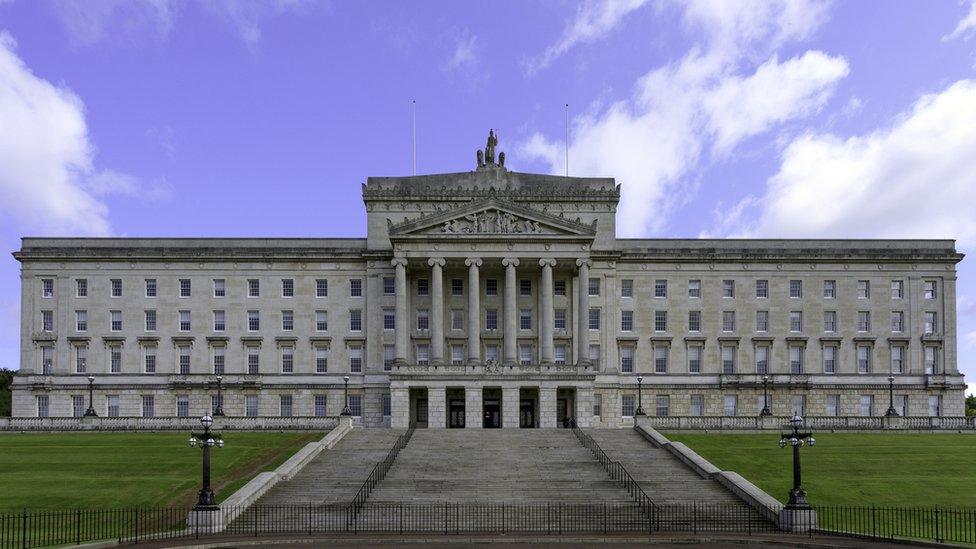NI 100: The unionists left behind in the new Irish state
- Published
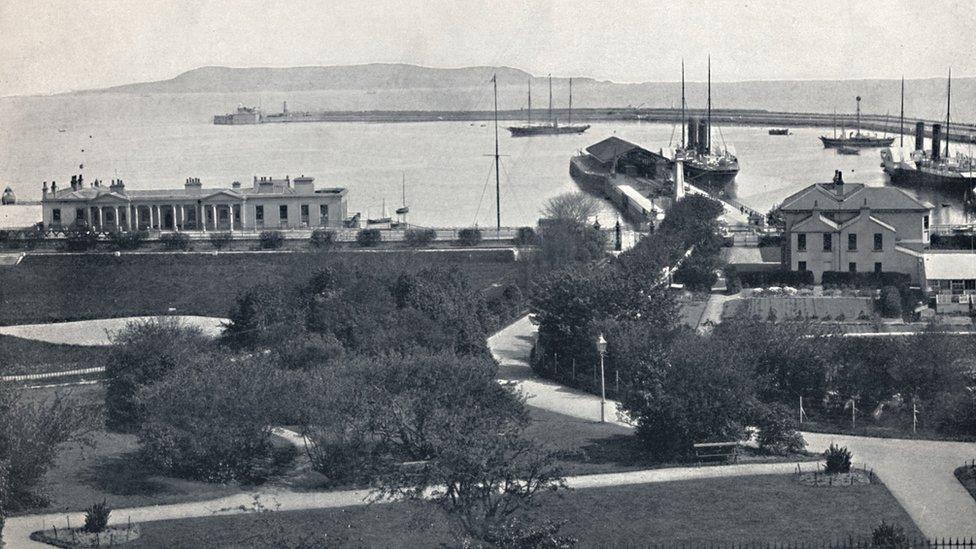
Dún Laoghaire, photographed here in 1895, used to be known as Kingstown
The Irish port of Dún Laoghaire is full of reminders of its British past.
The Royal Irish Yacht Club, the Royal Marine Hotel and the crowns that adorn the top of public architecture.
About 13km (8 miles) south of Dublin, it used to be known as Kingstown and regularly returned unionist MPs.
The year of partition, 1921, and the ongoing Irish War of Independence, also left its mark on the area, according to the writer Julie Parsons whose grandfather was a local Church of Ireland rector.
She has researched what happened to his congregation after partition and independence, and came across the 1921 story of Andrew Knight, a tram ticket inspector.
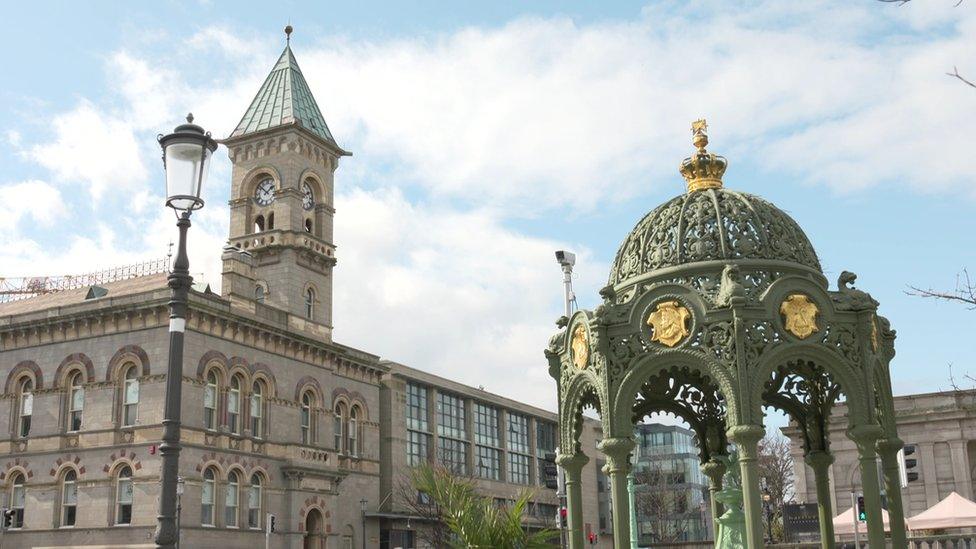
Dún Laoghaire is full of reminders of its British past
He was 42 and married with five children - the youngest just eight.
He was murdered by the IRA after he identified to the police two men who got on board his tram.
"They were arrested and taken away and charged with IRA membership," she says.
"Two days later Andrew didn't come home from work and his body was found by a boy herding cattle under a hedge in Castlepark Road in Dalkey, just a couple of miles from where Andrew lived.
"He had been shot in the neck and he had died from shock and haemorrhage from large blood vessels in his neck."
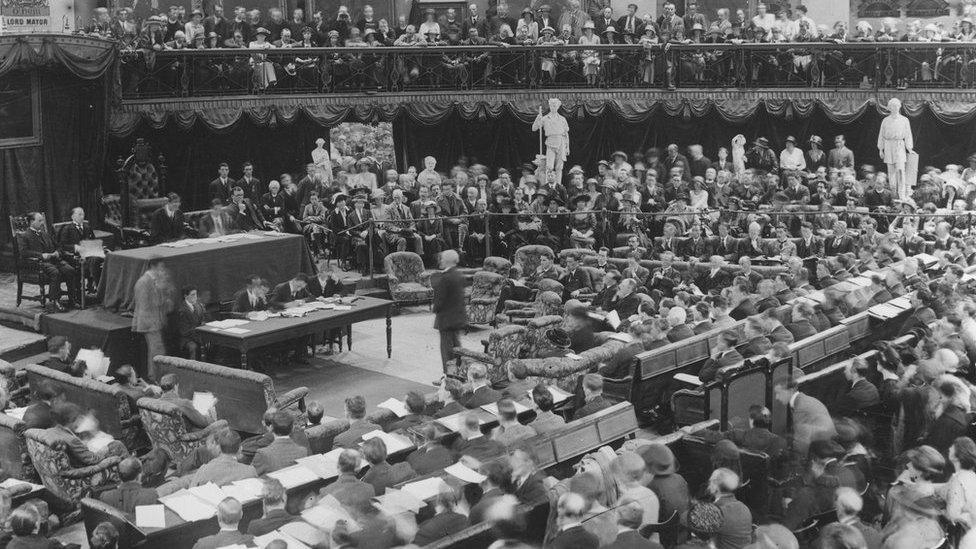
In nearby Dublin, the Dáil Éireann (Irish Parliament) sat at the Mansion House
One of the main stores on the town's main street was Lee's.
It was founded by Edward Lee towards the end of the 19th Century.
A liberal unionist, he was sympathetic to workers' rights.
His great grandson Michael Lee describes his family as pragmatic Protestants who decided to continue their business and stay after the British left.
"They realised things were changing but they also had business to run and those businesses also contained many people working in them, many, many Catholics included," he says.
"They all had families and I think they were pragmatic enough to realise: 'OK. Keep going, keep our heads down, let's not rock the boat and we'll be fine.'"
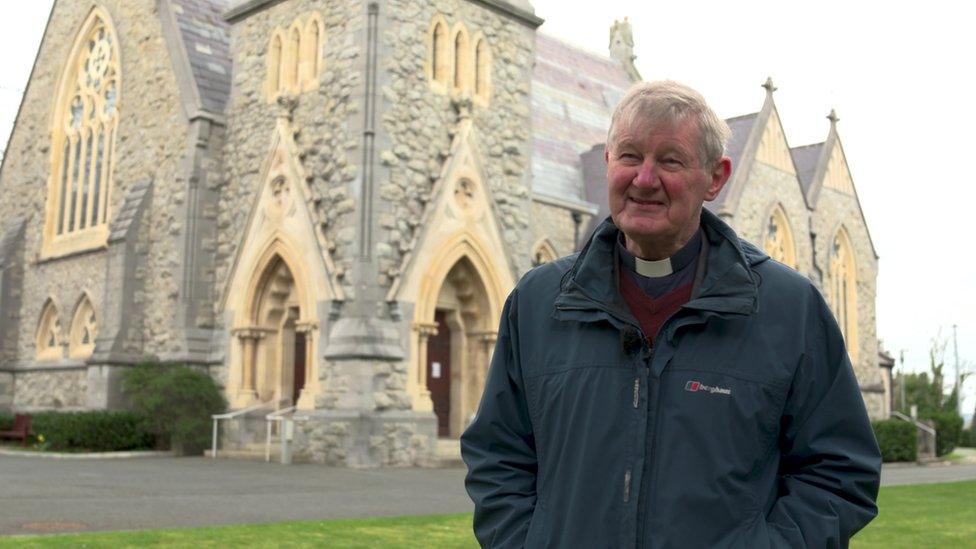
Gordon Linney said as a child he was made to feel "a stranger in my own country"
Keeping the heads down was for decades the lived Protestant experience, according to Gordon Linney, the former Church of Ireland archdeacon of Dublin.
He believes his community was politely tolerated but gently squeezed by a new state that had a very Catholic ethos in its opposition to divorce and contraception.
And all of this at a time when the Catholic Church expected children in a mixed marriage to be raised as Catholics.
"When I was going to school I remember well - and this 74 or 75 years ago - 'Proddy woddy on the wall, half a loaf will do yis all'," he recalls.
"And you know that's the way it was and kids are only reflecting what they hear at home.
"To be made feel a stranger in my own country - I get angry with people in my own community who will not stand up and talk about the great people of our tradition and how we shaped and made this country what it is today."
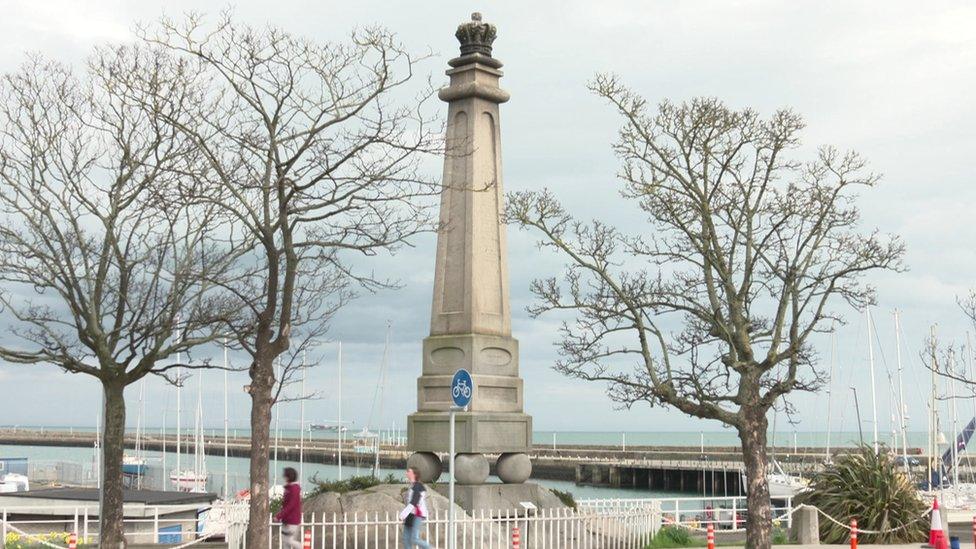
Crowns adorn monuments and buildings around Dún Laoghaire
But the Protestant community - who like their Catholic counterparts largely lived in their own bubble with, for example, separate schools and clubs - slowly reconciled themselves to the new state.
Greater inter-church dialogue associated with Vatican Two and ecumenism broke down barriers as did modernisation, foreign travel and broadcasting.
But Deirdre Nuttall, the author of the book Different and the Same: A Folk History of the Protestants of Independent Ireland, says the violence in Northern Ireland also played a role in the community's sense of itself.
"I think the Troubles tended to make Protestants in the south more nationalist rather than less," she said.
"They didn't want to be associated with anti-Catholic discrimination.
"And they were horrified by the terrorism carried out by Protestants, as well as obviously the IRA."
Maybe because of the Protestant influence Dún Laoghaire, a by and large wealthy area, was always the most liberal part of the Republic.
The recent abortion and same sex referendum results show the rest of the country is now no longer swimming against the tide.

The BBC News NI website has a dedicated section marking the 100th anniversary of the creation of Northern Ireland and partition of the island.
There are special reports on the major figures of the time and the events that shaped modern Ireland available at bbc.co.uk/ni100.
Year '21: You can also explore how Northern Ireland was created a hundred years ago in the company of Tara Mills and Declan Harvey.
Listen to the latest Year '21 podcast on BBC Sounds or catch-up on previous episodes.

Related topics
- Published13 June 2021
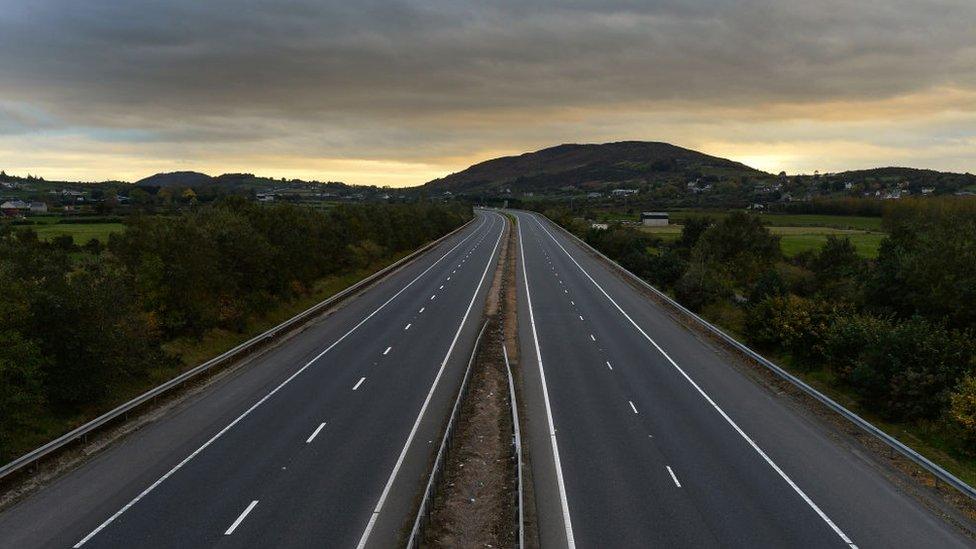
- Published20 June 2021
